Before writing The State of Social Media Marketing—an in-depth, thorough study of social media use among marketers—we looked around at the existing research to see what other organizations were asking in their surveys. Much of it seemed interesting, but lacking in nuance.
For example, social media usage was measured by asking about budgets rather than time spent using social media: e.g., What is your Twitter budget? I'm guessing it's the same as mine: $0. Another example: many studies surveyed marketers to see what kinds of tactics work, but didn't bother to find out what kinds of organizations these tactics work for, or how tactical effectiveness varies within changing contexts of business vs. consumer targets. The reality is that what works great for one person often doesn't work at all for another.
We did our due diligence and asked the kinds of questions that would lay the groundwork for benchmarking. Because we at MarketingProfs have what we believe to be the largest sample of marketers out there (approximately twice the size of other studies), even though we asked many of the questions found in other research we were able to slice our respondent cells into very specific buckets, making them far more actionable than aggregate-level statistics.
We found out how adoption of various social media websites and tactics varies by industry, by target, and by company size.
Following are a few examples of the kind of depth you probably won't find anywhere else.
First, we look at the participation rates of companies in social media by industry. What we find is that while the overall average is fairly high, adoption is over one-third in just the top few industries. In other words, the majority of the companies in these industries are NOT participating in social media.
That does not mean, however, that the people working within these companies are abstaining. What we found is that there is essentially a gray market of at-work social media use.
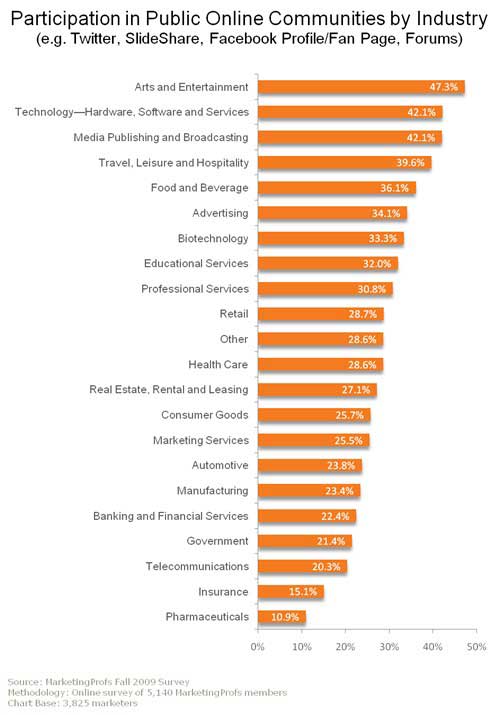
A big surprise to us as we went through the data was the lack of structure among most social media workers. For many marketers, social media has become an invaluable tool in the workplace, yet their participation is not always sanctioned by their employers. Nearly two-thirds of the marketers we surveyed who indicated that they use social media "at work, for work" do so on their own initiative.
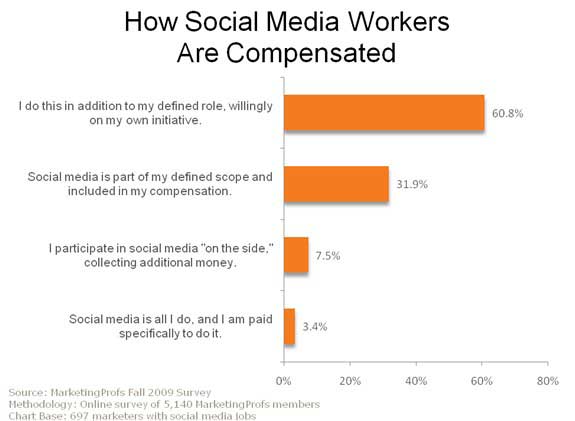
If so many marketers are using social media without an official mandate to do so, and social media budgets are generally something reserved for outsourced professionals, like a PR firm, we have to wonder what the true cost of all this social media activity is.
In the following graph, we took the reported yearly income of 393 social media workers (those who use social media at work, for work) and graphed how much their average pay was against how much time they spend in a normal day using social media. It turns out that these users tend to have salaries on the high end of the range. In other words, the true cost of social media must be higher than social media budgets would lead us to believe.
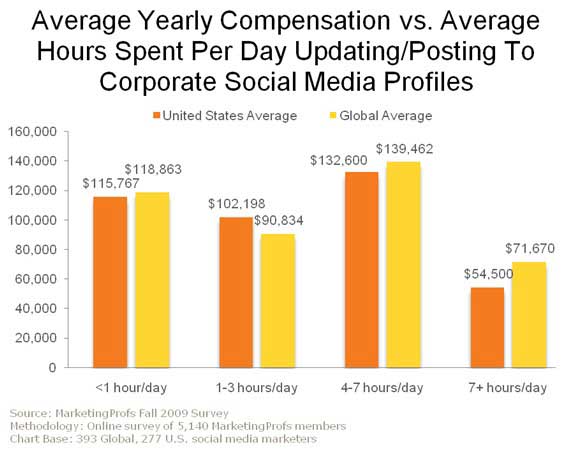
Because there is so much confusion among employers about what the social media policies ought to be at their companies, we decided to see what effect different policies have on the success of various social media tactics.
In this chart, we took at look at just the marketers who were successful at using blogs to "showcase thought leadership" to their target audience, then compared their on-the-job blogging policies. It turns out that less-restrictive blogging policies do actually make it easier to accomplish this goal.
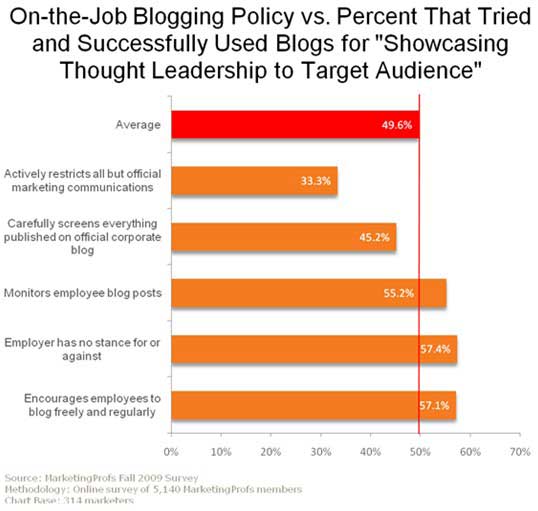
Similar to the previous chart focusing on blogging policies, this time we took at look at the effect of corporate culture on the success rates of using blogs for showcasing thought leadership. Both columns in the table represent only those who successfully tried the tactic—the only difference is corporate culture. It turns out that being a thought leader has as much to do with intellectual honesty as it does with working for a company that takes tech seriously. On the other end of the scale, if you work for a company that values tradition over innovation, you may find it difficult to find success with this tactic.
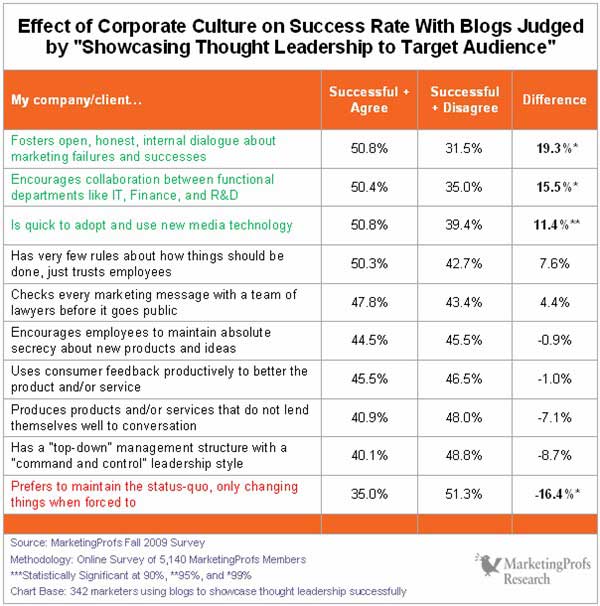
Finally, we noticed that social media tends to be a very divisive topic among marketers. Nearly as many marketers loathe the idea of an always-on Twitter-verse as love it. We decided to figure out what it is about social media marketers that makes them different. We asked a variety of questions about personality and values, all of which are very interesting; but, in the end, I think we can boil it down to a fairly simple conclusion: Sociable people like working in social media.
In the following graph, we compared how much marketers like mixing their personal and private lives with their level of involvement in on-the-job social media work. As you can see, there is an obvious and consistent trend. Social media workers are indeed a little different.
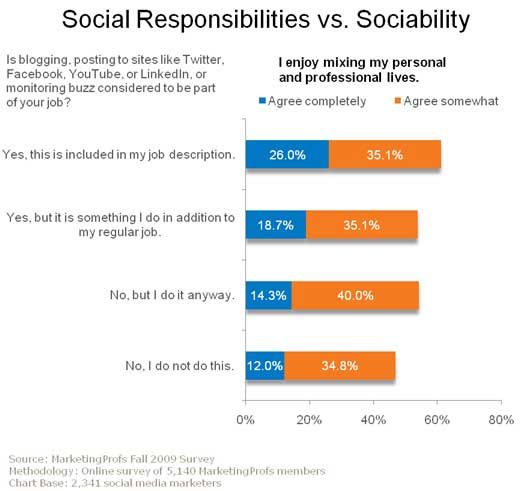
I hope you found this taste of The State of Social Media Marketing to be both interesting and informative. I encourage you to invest in the full report and dig deeper into the many differences we found. Every company is unique, and it's important to recognize that as you proceed with social media marketing.
Did you like what you read about The State of Social Media Marketing report? Learn more about the research and take a look inside. Premium and Premium Plus members receive a 40% discount on the report (a savings of $240!).




